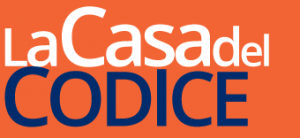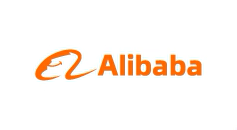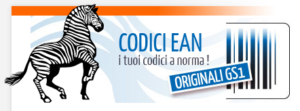Website Privacy Policy
This policy pertains to G.T.I.N. GENERAL TECH ITALIA NETWORK BY MERCANDO MARKET SERVIZI di CARAVAGGIO L., VAT number 02437840693 – REA CH-178951, hereinafter referred to as the “Company,” for the Company’s websites or web servers or web services, hereinafter referred to as the “Company’s sites.” This page describes the management methods of the Company’s sites regarding the processing of personal data of visiting users, hereinafter referred to as “user(s),” who access them. This policy is also provided in accordance with Article 13 of Legislative Decree no. 196/2003 “Code regarding the protection of personal data” to those who interact with the Company’s sites accessible via the internet, hereinafter referred to as “Internet.”
Data Controller
As a result of accessing the Company’s sites, data concerning identified or identifiable individuals may be processed. The data controller responsible for their processing is the legal representative of the Company.
Data Processing Location
The processing related to the Company’s web services takes place at its registered office and is handled solely by its staff. No data derived from the Company’s web services is communicated or disclosed to third parties (see GDPR Specifications).
Processing Methods and Types of Data
Navigation Data: The information systems and software procedures used for the operation of the Company’s sites acquire, during their normal operation, certain personal data whose transmission is implicit in the use of internet communication protocols. These are pieces of information that are not collected to be associated with identified individuals but, by their very nature, could allow the identification of users through processing and association with data held by third parties. This category of data includes IP addresses or domain names of computers used by users who connect to the Company’s sites, URI (Uniform Resource Identifier) addresses of the requested resources, the timing of requests, the methods used in submitting requests to the Company’s servers, the sizes of files obtained in responses, numerical codes indicating the status of the responses given by the servers (successful, error, etc.), and other parameters related to the operating systems and computer environments of the users visiting the Company’s sites. These data are used solely to ensure the proper functioning of the Company’s sites and may be retained or deleted after processing. They may be used to ascertain responsibility in case of hypothetical computer crimes against the Company’s sites. The data voluntarily provided by the user of the Company’s sites through the optional, explicit, and voluntary submission of personal data via the filling of electronic forms will result in the subsequent acquisition of such data for the purpose of providing the requested service.
Compulsory or Optional Nature of Data Provision
Apart from what is specified for navigation data, the User/Customer is free to provide the personal data reported in the request forms made available by the Company or indicated in contacts to request the sending of informational material or other communications. Their failure to provide such data may make it impossible to fulfill the request.
Rights of the Data Subjects
Individuals whose personal data is being processed have the right to obtain confirmation of whether or not their data is being processed and to know the content and origin of the data, verify its accuracy, or request its integration, update, or rectification (art. 7 of Legislative Decree no. 196/2003). According to the same article, individuals also have the right to request the erasure, anonymization, or blocking of data processed unlawfully, as well as to object, on legitimate grounds, to their processing. Requests should be addressed to the Data Controller through the contact form. See also GDPR Specifications.
Cookies
Cookies are text strings, hereinafter referred to as “cookies,” sent by websites or web servers or web services to the Internet web browser, hereinafter referred to as the “browser,” of the user and automatically stored on their computer, with the ability to be read, modified, or deleted on each occurrence or subsequent access to the site.
Further information can be found on Wikipedia.
This regulation specifically aims to explain the types, methods of use, as well as provide instructions on actions to refuse or delete cookies resulting from browsing the Company’s websites. By default, almost all web browsers are set to automatically accept cookies, but all browsers have cookie control functions.
The Company’s websites use or may use, in combination with each other, the following categories of cookies, divided according to the classification proposed in Opinion 04/2012 on the exemption from consent for the use of cookies issued by the Working Party under Article 29 in the European Union:
- “Session cookies” that are stored on the user’s computer for mere technical-functional needs, for the transmission of session identifiers necessary to allow secure and efficient site exploration; they are deleted at the end of the “session” (hence the name) by closing the browser. This type of cookie avoids the use of other potentially harmful computer techniques for the confidentiality of user browsing;
- “Persistent cookies” that remain stored on the hard disk of the computer until their expiration or deletion by users/visitors. Through persistent cookies, visitors accessing the site (or any other users using the same computer) are automatically recognized on each visit. Persistent cookies serve many functions in the interest of navigators (such as the use of the navigation language or the registration of the shopping cart in online purchases). However, persistent cookies can also be used for promotional purposes or even for purposes of questionable lawfulness. Visitors can set their computer’s browser to accept/reject all cookies or display a notice whenever a cookie is proposed, in order to evaluate whether to accept it or not. However, users are authorized to change the default (default) configuration and disable cookies (i.e., block them permanently), setting the highest level of protection.
These two types of cookies (session and persistent) can in turn be
- “first-party” when they are directly managed by the owner and/or controller of the website
- “third-party” when the cookies are set and managed by entities other than the website visited by the user.
How cookies work and how to delete them
The functioning and options to limit or block cookies can be modified by changing the settings of your browser.
You can refuse to accept or delete cookies used on the Company’s websites by appropriately configuring your browser, but this may prevent the visitor from using all the features of the Company’s websites.
You can also visit the website aboutcookies.org for information on how to manage or delete cookies based on the type of browser used.
To delete cookies from a browser on any device, refer to the respective user manual of the software and/or device.
List of cookies potentially present on the Company’s websites
The following table lists the types of cookies potentially used on the Company’s websites.
As mentioned, cookies can be both session and persistent, as well as third-party cookies.
The latter fall under the direct and exclusive responsibility of the respective operators and are divided into the following major categories:
- Analytics: These are cookies used to collect and analyze statistical information about website visits or access. In some cases, when associated with other information such as login credentials for accessing restricted areas (email address and password), they may be used to profile the user (personal habits, visited websites, downloaded content, types of interactions, etc.). For example, Google Inc. stores the information collected by the cookie on servers located in the United States or other countries to obtain aggregated statistical information useful for evaluating website usage and visitor activities. Google reserves the right to transfer the information collected by its cookies to third parties as required by law or when such third parties process information on its behalf. Google ensures that the user’s IP address is not associated with any other data in order to obtain a more detailed user profile. Further information on privacy and their use can be found directly on the respective operators’ websites.
- Widgets: This category includes all graphical components of a user interface of a program designed to facilitate user interaction with the program itself. For example, cookies from Facebook, Google+, Twitter are widgets. Further information on privacy and their use can be found directly on the respective operators’ websites.
- Advertising: This category includes cookies used for advertising within a website. Google, Tradedoubler fall into this category. Further information on privacy and their use can be found directly on the respective operators’ websites.
- Web beacons: This category includes code snippets that allow a website to transfer or collect information through a request for a graphic image. Websites can use them for various purposes, such as analyzing website usage, monitoring and reporting on advertisements, and personalizing advertisements and content.
Google Analytics Disclaimer
The Company’s websites may use Google Analytics, a web analysis service provided by Google, Inc. Google Analytics uses cookies to generate reports for the Company’s operators regarding visitor activities. The Company’s websites do not use Google Analytics to monitor or collect personally identifiable information of its users
, nor does it allow third parties to do so. Google’s privacy policies can be found here. By using the Company’s websites, users may consent to Google processing their data for the purposes and in the manner described above.
Specifications according to the EU Regulation 2016/679 (“GDPR”, May 25, 2018)
Regardless of GDPR, the Company informs that it does not collect any personal or sensitive data beyond what is necessary for order processing. In any case, the Company specifies that all collected data is not disclosed to third parties. As for computer equipment and storage, they are owned and solely managed by the Company, even if located in any infrastructure. Any inquiries regarding this matter can be addressed through the contact form.
V.1.6.4, dated January 2, 2025.










